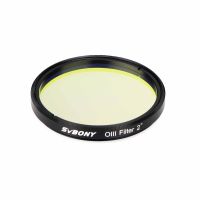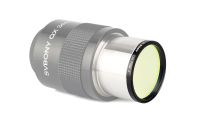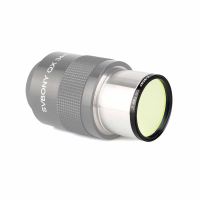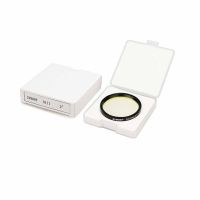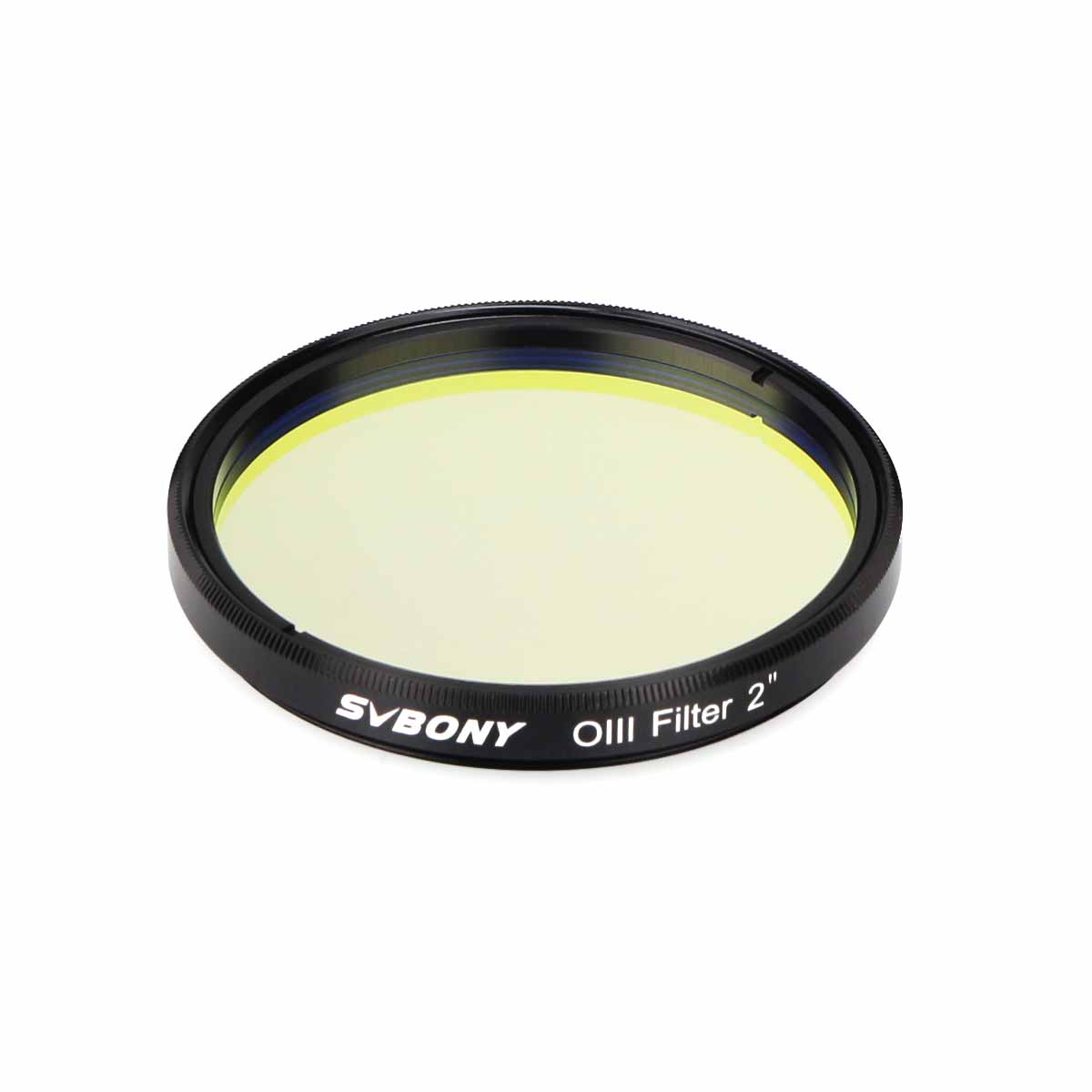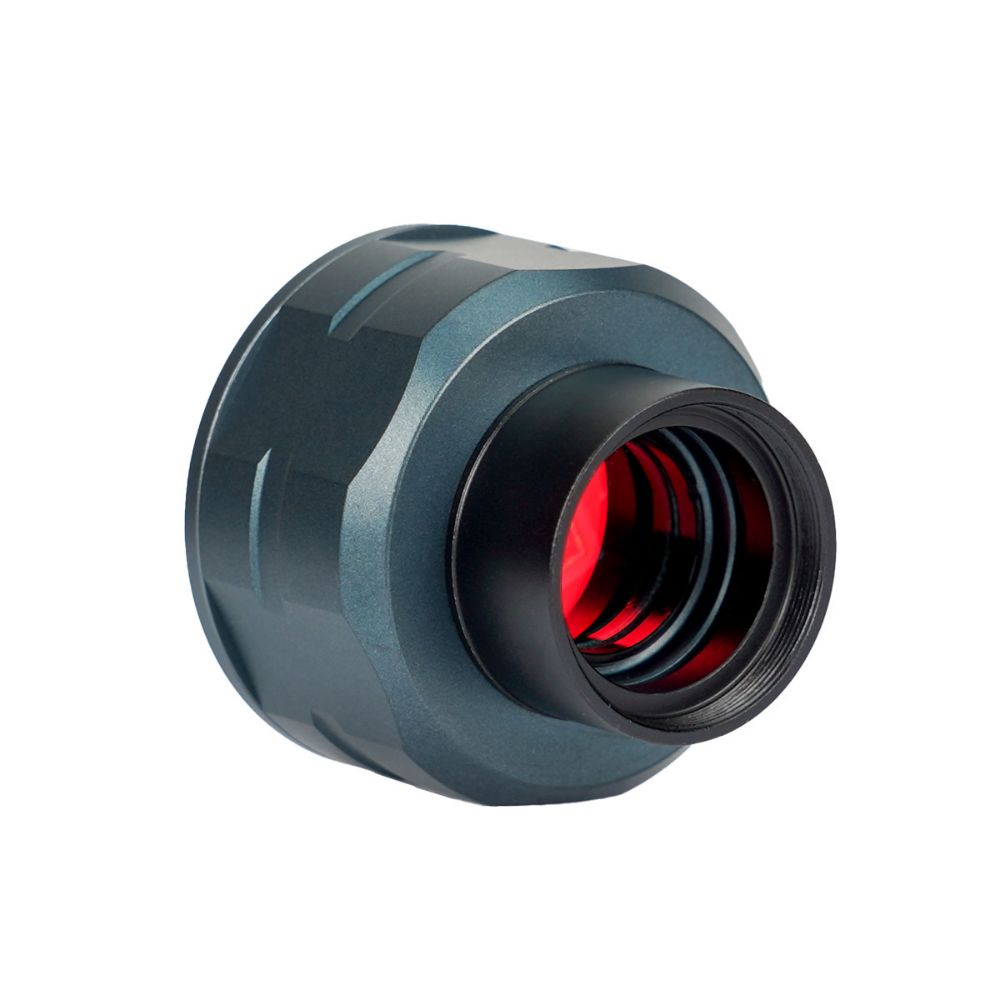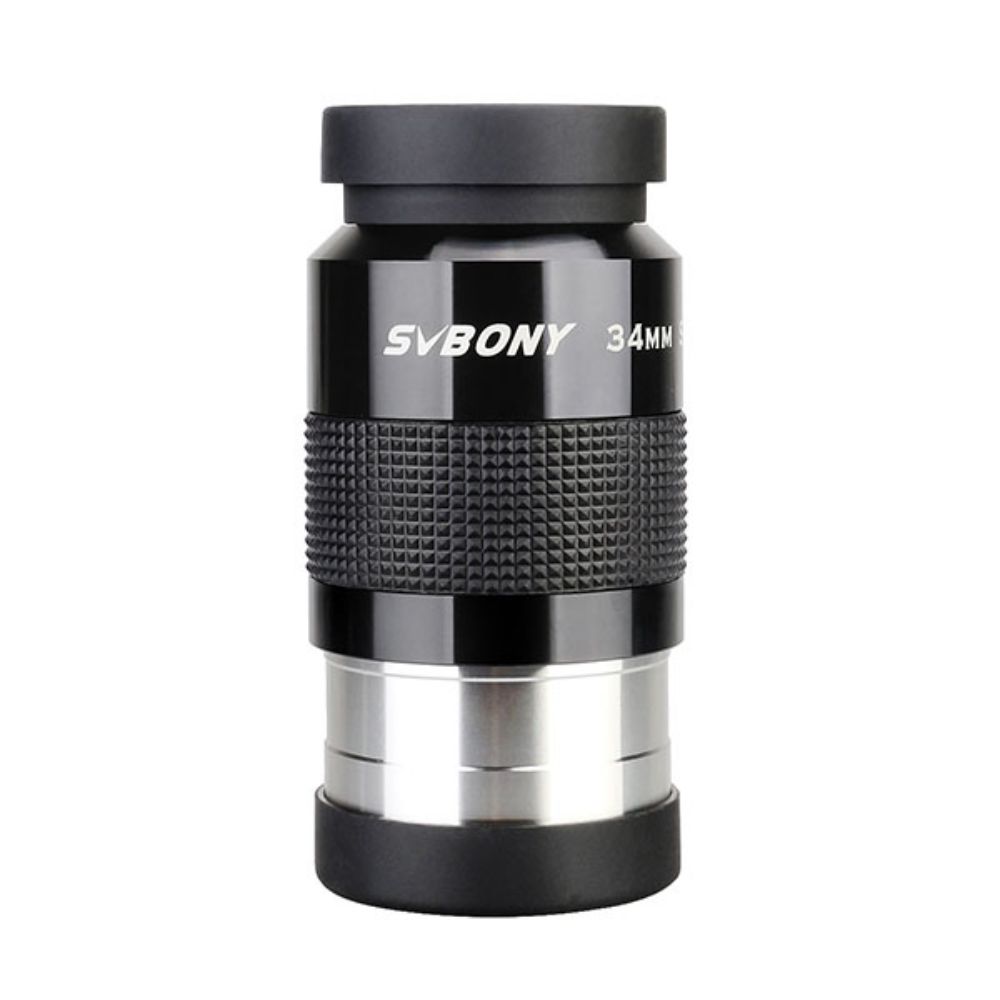- The O-III filter completely blocks virtually all other visible wavelengths of light so views of nebulas are optimized;increases contrast through selective filtration-Anti-reflection coated to prevent glaring and ghosting
- The filter made from high-grade glass with dichroic interference and antireflection coatings;not only useful at light-polluted sites; the contrast is also increased at dark sky sites;it can be used with all 2" eyepieces
- Narrowband filter do not eliminate the effects of light pollution or increase the object’s brightness;in many cases, they increase the contrast between nebula and night sky, not brightening the nebula
- The 2" O-III filter useful for large aperture telescopes through which the light of the Moon can be extremely overwhelming. Allowing just for the Double Ionized Oxygen lines between 495.9nm to 500.7nm to pass through at 90%
- Astrophotographic;The filter enhances contrast during visual observation of gaseous and planetary nebulae in all sky conditions; 2" filter allows high-contrast imaging even in areas with strong light pollution

wow!
Look up and open your eyes to the sky
| Model | F9186B |
| Size | 1.25'' 18nm O-III |
| Blocking area | 400-700nm |
| Transmittance | 90% at 495.9nm and 500.7nm |
| FWHM | 18±2nm |
| Thickness | 1.85mm |
| Diameter | 2 inch |
1. Narrowband OIII filter is designed for nebula observation allowing 18nm bandwidth of light centered on a wavelength of 500nm through, which corresponds to OIII emission lines, and reducing the transmission of certain wavelengths of light, specifically those produced by artificial light including mercury vapor, and both high and low pressure sodium vapor lights and the unwanted natural light caused by neutral oxygen emission in our atmosphere
2. Svbony narrowband OIII filter suitable for visual observation on most emission nebulae, planetary nebulae and supermova surfaces
3. Suitable for viewing on bright nebulae like M42 Orion Nebula in heavy light pollution
4. Use with a large aperture telescope under clear and dark viewing conditions with good seeing
5. Narrowband filter do not eliminate the effects of light pollution or increase the object's brightness. In many cases, they increase the contrast between nebula and night sky, not brightening the nebula



